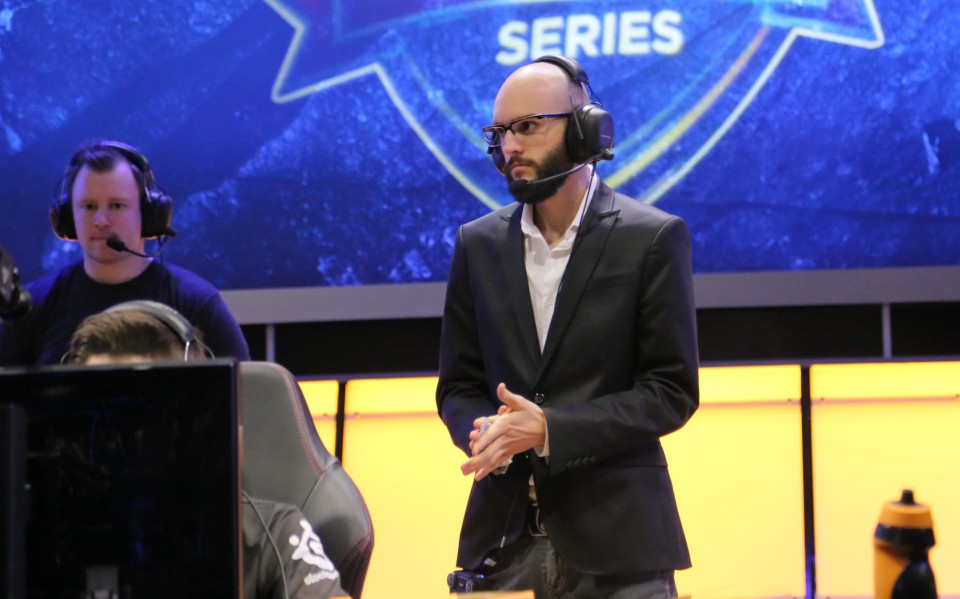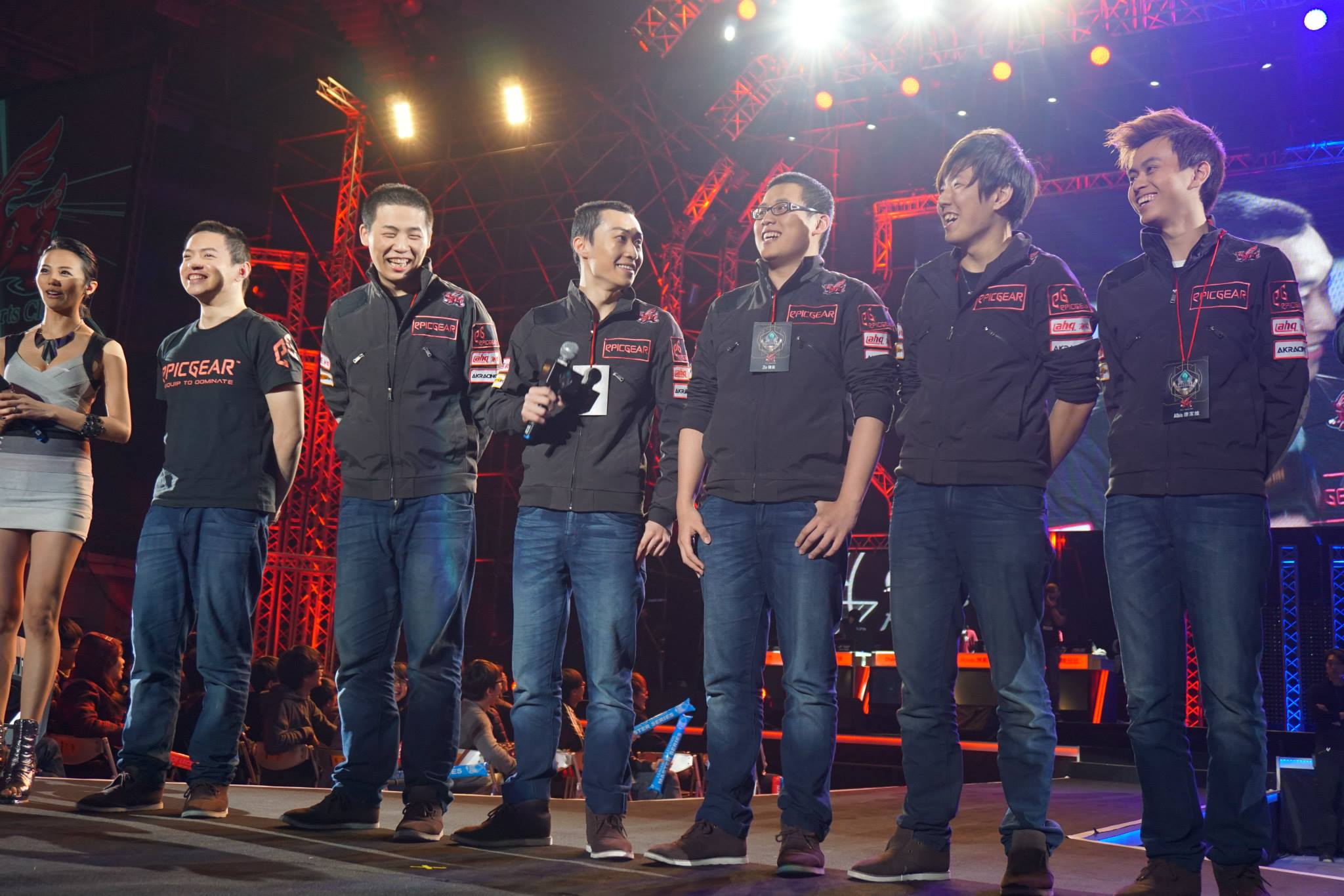Why coaches matter in League of Legends

A while ago, I did an interview on behalf of a Danish publication, angling to learn more about the analytical side of League of Legends. We know they exist: teams like Fnatic occasionally puts out the cattle call for those interested in providing background support for their players. When the nigh-mythical "infrastructural advantage" in the eastern hemisphere is mentioned, it's usually in reference to the coaches and support staff that helps bolster their players' efforts. And, occasionally, a western analyst will either get into enough drama or make enough of a splash to be known to the community at large (or at least the hardcore segment of the community that cares about such things).
It made me really angry to learn how much better life was for analysts outside the LCS.
According to former Origen analyst Veteran, hailing from the British isles, the Turkish teams were offering as much as $500 a week, US dollars, to their teams' analysts. Brazil, too, is known to wave almost indecent amounts of money around in order to lure background talent to help their players. Sure, to anybody outside of esports, a paltry $2000 a month doesn't sound like much—it sounds, in fact, like a meager pittance. But those scant thousands not only measure up well to the local living standards, they also sound like a comparative fortune to what you'd get from western teams. Yes, even western LCS teams.
Obviously, China's paying a whole heck of a lot more for their support staff. Korea too. The only premier region I know of that pays at LCS averages or less is Taiwan, but we're the exception that proves the rule. We're able to piggyback off of the practices of our more affluent cousins up north and across the strait, ultimately making it so that it's still the efforts of paid analysts and coaches that govern our recent successes against western teams.
Does the importance of said roles need to be re-stated time and time again? What do team owners and fans even think is meant when commentators say that "infrastructure is why Korea wins?" It isn't some random buzzword. It isn't some magical chunk of handwavium to excuse years of dominance across multiple esports titles. There are some very basic, very concrete concepts that are getting ignored by western organizations, despite years to know better.
One, division of labor makes for fundamentally better play. Mechanical refinement and strategy development are two entirely different skill sets. Reviewing VODs to scout an enemy team's habits and trends cannot be done at the same time as polishing play through solo queue grinding—yet both need to be extensively conducted in order to elicit the best possible odds in any given matchup.
Two, you get the talent you pay for. I heavily disagree with esports' tendency to demand volunteer work of its enthusiasts in the first place—it's straight-up exploitative, for one, materially benefiting organizations while only providing intangible and oft-times outright nonexistent compensation for labors committed. But it makes even less sense for analytical work, which inherently requires skilled labor and expertise to be effective in the first place. You ask for volunteers and newbies, you get newbies that haven't had their analysis field-tested, have their priorities skewed by their spectators' perspectives, or simply have no experience articulating their points.
Keep up to date with the most important stories and the best deals, as picked by the PC Gamer team.
I would like to make a very important distinction at this point. I said that western organizations were ignoring these points. I didn't say they were ignorant of them. The effort and labor in identifying and recruiting high-level analysts is more intensive than identifying candidate players—even as analysts and coaches, in general, cost less than a full team. That's because skimming the top five available free agents off of the pool is easy, and the benefits immediate—you have, after all, just denied to other teams those top five particular talents, and thereby increasing your odds of success in a vacuum. The payoff is less immediately obvious with background staff. The natural inclination is, then, to play it conservatively and focus on the players only.

But "less obvious" is the farthest thing from "unnecessary." Fnatic and TSM-killing ahq E-Sports Club was at a dismal fourth place through most of this year's spring split. It wasn't until star support player GreenTea stepped down to analyze for the team that they've had their current golden era, slapping aside even prior regional champions to claim their dark horse position in the world standings. Over across the Taiwan Strait, coach Aaron's presided over China's most successful teams by any margin—a man rumored to have lied and cheated his way into the coaching position, just to prove his methodology superior to everybody else's.
And yet: despite the overwhelming historical evidence that a good coaching and analytical staff is just as impacting as five ace players to winning championship titles, their recruitment remains a secondary concern. The analysts are still paid pittances when they're getting paid at all. The coaches are not uncommonly given the bare minimum mandated and supported by Riot for their LCS teams. And there is still the implicit assumption that a Master-tier solo queue player that's almost never captained a formal draft is going to know more about pick-ban strategies than an enthusiast that's been compiling Excel spreadsheets of each teams' trends over the course of months.
If western teams want to continue to be taken seriously, it needs to wean itself off of this player-centric mindset and adopt a more holistic approach to team development and organization. The alternative is to find themselves in a Southeast Asia situation, watching their wildcard neighbors advance to the world stage while the west is left to obsolescence—a situation that will probably not enamor them overmuch to non-endemic sponsors.
It doesn't matter how strong your squadron of five is if you send them into battle naked as the day they were born. Even the best warriors are going to need blacksmiths, strategists, scouts, generals... even a team of Faker clones need a Kkoma to point them in the right direction. And Kkomas don't work for free.

